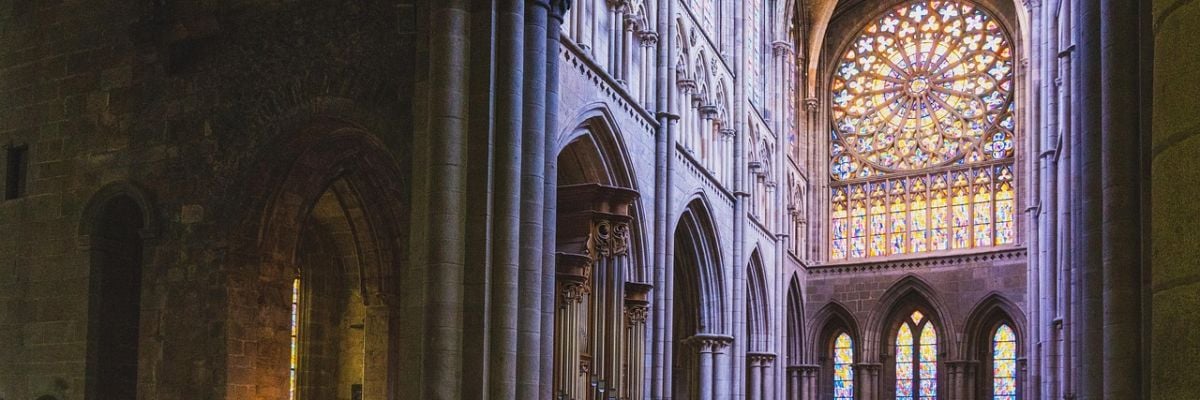
In this video, apologist Dr. Karlo Broussard and host Cy Kellet respond to a question asking about the phrase “No Salvation Outside the Church”
Transcript:
Caller: You know, I’m a young Catholic convert and I’m fully convinced of the faith. I just have this one question, and it’s why and what does it mean that people are only saved through the Catholic Church? I primarily ask this because of something I saw recently. It’s when the Blessed Virgin Mary appeared in Bethune and the implications of her appearing above a Coptic church and allegedly instructing for a Coptic church to be built in her honor.
Karlo: All right, so I can address the first part of the question confidently. With regard to the second part of the question about the alleged apparition of Our Lady in Zeitoun, I’m not quite sure about the details of that apparition.
Caller: Then I could make it more broad. I would say, what about any miracle outside of the Catholic Church, in any other church?
Karlo: Yeah. Okay, so let’s address that first. We would argue that there has not been, is not, nor will be a miracle outside the Catholic Church that is directly associated with some claim that conflicts with and contradicts what we believe to be true as Catholics.
So, that allows for the possibility that God has, does, and will bring about miraculous effects outside the visible boundaries of the Catholic Church to achieve some other purpose, maybe among non-believers, to bring them to the belief in a transcendent reality, which of course sets them on the journey to begin investigating precisely which transcendent reality.
In the case of Mary appearing, just as Mary can appear to whomever God wills for her to appear, whether Catholic or non-Catholic, within a non-Catholic setting, Mary can appear. This gets those who see the apparition on the journey to begin inquiring about Our Lady’s role in salvation history, which is preserved most fully within the Catholic Church as taught by the Catholic Church.
So, notice these miracles outside the visible boundaries of the Catholic Church within non-Catholic settings can be brought about to achieve the purpose of getting those individuals who experience it on the path to coming to know and experience the fullness of truth and life in the Catholic faith.
That’s what I would say about that.
Now, with regard to your first question, concerning the idea that one is only saved through the Catholic Church, we affirm that wholeheartedly. However, that does not mean one who is outside the visible boundaries of the Catholic Church is automatically damned. Rather, what we mean by that statement is that anyone who is saved is going to be saved inasmuch as they are at least invisibly united to the Catholic Church through which they receive the sanctifying grace that is needed for salvation, despite the fact that they lack visible unity.
The assumption here is that that lack of visible unity with the Catholic Church is due to no fault of their own. We can restate the proposition by saying it is possible for somebody to lack visible unity with the Catholic Church due to no fault of their own, and yet be at least invisibly united to the Church such that if they are saved, they are saved in virtue of that union on the invisible level to the Catholic Church, with which and through which they receive the grace that is necessary for salvation.
So, we can say they are saved through the Catholic Church and only through the Catholic Church. What do you think of that, Alex? I noticed a lot, but give me your thoughts.
Caller: Right, so then I would say it’s safe to assume that those who are in other ancient Christian churches, like Orthodox or Coptic or the Assyrian Church of the East, many of them can be in invisible communion with the Catholic Church.
Karlo: Yes. The possibility remains, even though they lack visible unity, which we would argue is willed by Christ and that Christ desires that. Nevertheless, for certain individuals, it is possible that they are not responsible for such a lack of visible unity and thereby could very well be at least invisibly united via whatever grace is being given to them, via the sanctifying grace that was given to them through their valid baptism and through the valid sacraments that they have.
Cy: All right, thank you very much. I’m going to keep going. I realize there are lots of folks still on the line, so I do have to keep moving, but thank you very much.



